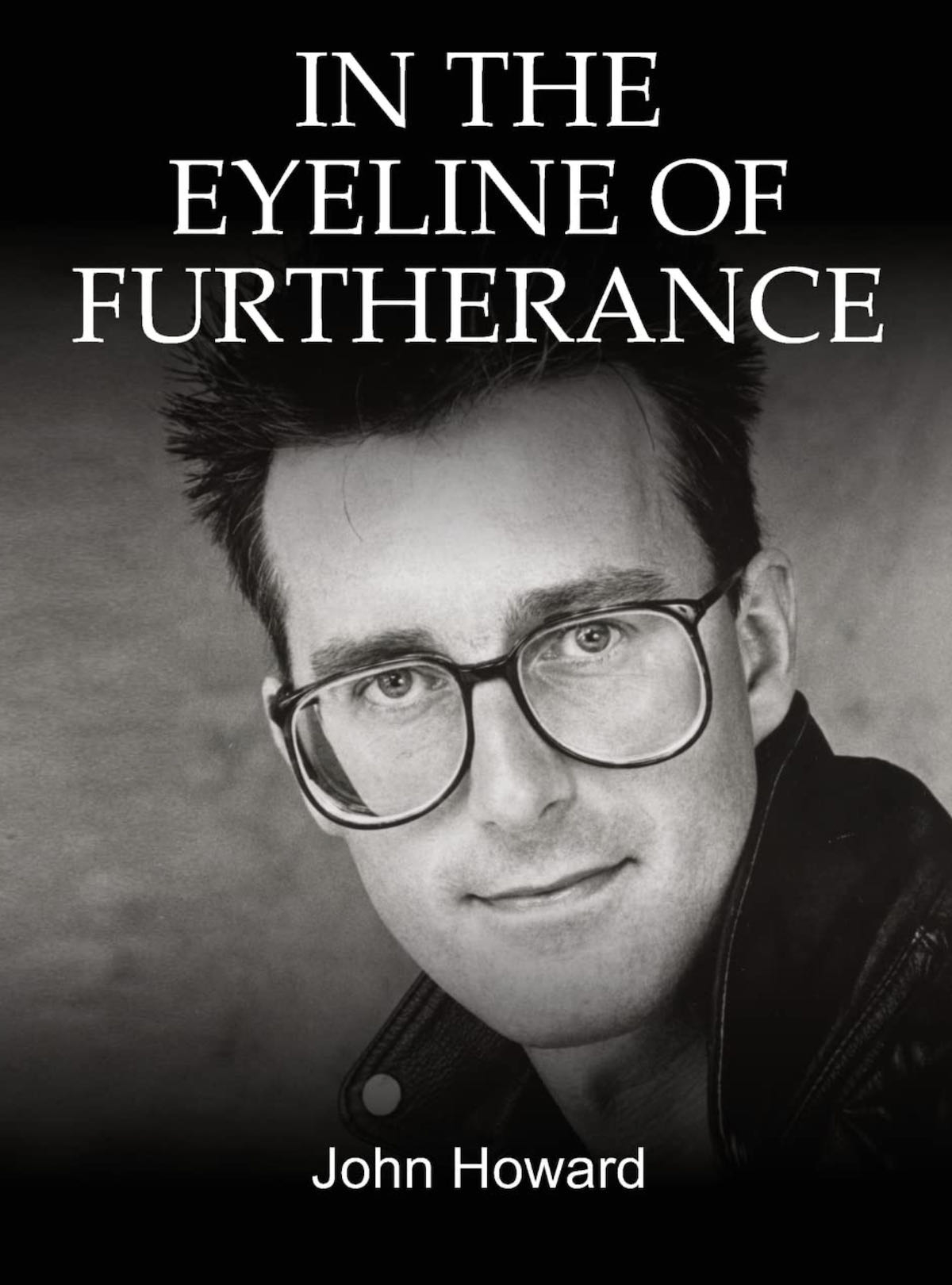
by JOHN HOWARD (Fisher King)
This latest memoir is English singer-songwriter John Howard's third appraisal of his tryst with life. Covering the last two decades of the century gone, it details the underside of a convoluted but event strewn sojourn in music.
By virtue of happenstance, personal charm and a fan's knowledge of pop songs, Howard enters the world of men in suits, set in their ways and driven by a need to have their own sense of self-importance constantly confirmed. An avenue through which he navigates with good grace, despite it being festooned with antiquated sharks, Dickensian in mode.
Once the "next big thing" signed to CBS Records in 1973 he becomes fifteen years later a licensing A&R man for budget labels, a brief stint at MCA and then Reader's Digest. His previous career being a time he barely mentions to his colleagues, if at all.
There pervades an air for the reader of sadness at a man of his obvious gifts being reduced to licensing the elderly recordings of stars on their descent from fame. It is a fascinating insight into the underside of the tapestry of ambition and success. Careers in decline, an audience aging with their icons in a sadly Proustian fashion. Howard however is in his element and simply goes with the flow. Compilations of budget priced records and compact discs that still clutter market stalls, charity shops and thrift stores, the bane of any vinyl junky in that need for a hit, the detritus of his efforts.
Here walk the ghosts of vinyl pasts. Lonnie Donnegan, Bert Weedon, Acker Bilk, with the occasional near modern blast of Madness & Culture Club, who now most definitely belong to the trade of nostalgia also. Along the way is a lost Dusty Springfield project, sadly curtailed by illness and the Grim Reaper, a previously unknown Doris Day platter from 1968, and vignettes from the likes of the indomitable Brenda Lee and the vastly underrated Elkie Brooks. People who maintain a following without a reliable recording deal. The potency of nostalgia.
There are other moments of more personal transcription. Howard's vivid portrayal of his bereavements through Aids, sensitively recreates an era of paranoia and loss. It is a timely reminder and testament to, a wave of grief that has thankfully been depleted of its savagery. Forgotten lives remembered like those lost in a war.
He writes with exasperated tenderness about his late father's difficult second marriage to a woman whose mental health problems, sadly undiagnosed, made her a controlling and vindictive presence. Alan Bennett meets Samuel Beckett. I met his father once and found him to a be a genial soul, but one ill-prepared for the level of coercive control to which he was daily, mostly secretly, subjected to.
His wife routinely censored his newspapers with scissors of any women he might have found attractive. In every dream home a heartache as Bryan Ferry so evocatively intoned. Howard briefly earned some brief-lived kudos from her by facilitating an after-show introduction to her hero Barry Manilow. An irony she refused to sanction by hanging a photograph of the occasion on their bedroom wall. It proves a saddening centre to the book, both frightening yet absurd. His father even pleads with his son not to let her know he watched television when he visited him, because she had to sanction everything he viewed.
As the book progresses the muse of Howard's rarely mentioned former pop career flits and flutters in mostly unrewarding ways. Songs recorded for children's records, a near chart hit he penned, covered by family entertainer Des O'Connor ( it reached No 76 in the UK charts) and a lost album consumed by the implosion of the record label that was days away from releasing it.
From these pages Howard emerges as an assured, charming soul with the heart of a fan. There's a delightful cameo encounter with Beach Boy Bruce Johnson, and the night when an unusual and unexpected attack of the jitters robbed him of a conversation with his idol Paul McCartney. This is a wonderful journey into a lost world of record companies, largely swept aside by the digital age. There are many insufferable dinosaurs, given the light of print and memory. One unsavory European is particulary vile, but his arrogance allows Howard a well-rewarded final say. A rare example of karma in full flow.
For the past twenty years John Howard has been consistently productive. A myriad of albums and songs have tumbled forth as he has gained the rightful respect of of his peers. Though he says he has no wish to annotate his 21st century revival, I fear that would be an oversight since his return to music with such vitality and aplomb happens rarely. Bill Fay and Sixto Rodriguez being two notable exceptions. This book is in some ways his years in the wilderness, but is a funny and rewardingly touching read.
It is vital and imperative that he transcribes his return to the land of promise he always had a divine right to inhabit, the best revenge being able to live and wear it well.
